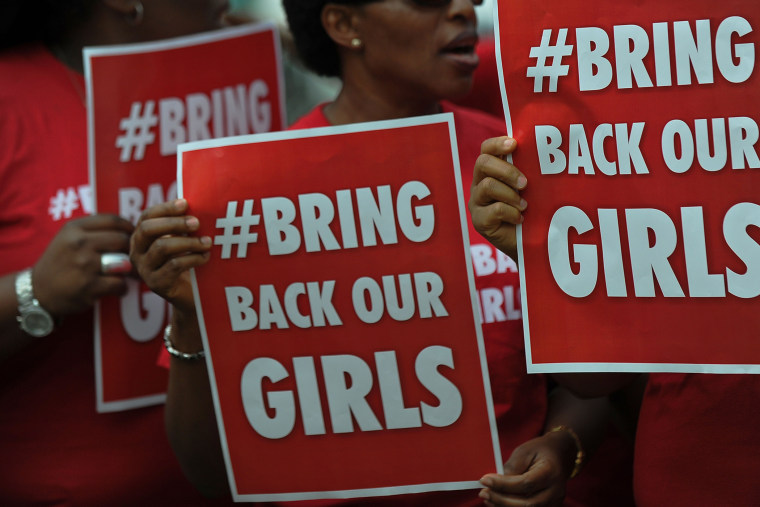Nigeria suffers from widespread psychological trauma caused by high levels of corruption, uncontained acts of terror, and human rights abuses.
After its history of colonialism, its citizens were governed by military dictators, who ceded power only to make room for a trail of corrupt "democratic" leaders, ranging from the late President Sani Abacha who pocketed more than $3 billion through the government, to the current administration.
Under President Goodluck Johnathan, $20 billion has reportedly gone missing from Nigeria's petroleum agency--with no attempt to identify who may have stolen it, and, in fact, admonishment for the official who tried to find it.
The nation's army has been described as "evil" in the international press. And, despite the country's profound oil wealth, its leaders, ironically, have failed to provide even basic electricity to all citizens. The list of traumas just goes on.
Typically, Nigerians have dealt with these abuses by using a coping mechanism: uttering the phrase "e go better," which one Nigerian writer describes as the constant prayer of most Nigerians. This "e go better" mantra is the fervent hope that, one day, Nigeria's atrocities will somehow self-correct, or “get better.”
But, the country's most recent devastation involving almost 300 girls being kidnapped from rural Chibok serves as indisputable evidence that Nigeria's conditions will not "get better" on their own. In fact, there is significantly more evidence that these types of crimes have only gotten worse.
For example, long before the Chibok incident, kidnappings had become so commonplace in Nigeria that they rarely made front-page news, and have even become a "lucrative enterprise," according to BBC News.
Now, the abduction of the Chibok girls has generated headlines across the globe and sparked an unprecedented manhunt in Nigeria by American military forces, the culminating crisis of a society that is spinning out of control.
But before the schoolgirls were seized, most Nigerians had been able to silently manage the pain caused by terrorist group Boko Haram, in part by saying "e go better."
Yet, somehow, things have fallen apart.
Despite President Goodluck Jonathan declaring a state of emergency in militant stronghold Borno state in 2013, casualties related to Boko Haram attacks have more than tripled, according to data released by the University of Sussex.
As recently as this week, terrorists killed 118 people in a bomb blast, and another 30 in villages close to where the girls were kidnapped.
The people of Nigeria may need to stop "waiting for better," stop accepting the blatant stealing of billions in oil revenue, and start demanding that those monies be used to actively improve life for all Nigerians.
To be fair, some Nigerians have tried to take action, with recent reports showing some northerners fighting Boko Haram themselves. But, such groups are not trained to eliminate terrorism, and, Boko Haram is not the only issue within Nigeria.
The fundamental issue is a deeply corrupt, disorganized and unresponsive government. And it will not just "get better."
How can Nigerians actively seek change?
Many Nigerians have been simply too afraid to make demands of the government, because history has shown that the price for protesting or whistle-blowing can be steep. The country's finance minister, for example, endured the kidnapping of her mother after she led a high-profile campaign to clean up corruption.
Recently, demonstrators in Nigeria who protested against the Chibok abduction suffered the bizarre accusation that they fabricated the news of the girls being kidnapped, as well as an alleged order to be arrested -- by the country's First Lady, who doesn't even have constitutional powers.
Part of this acceptance of bad conditions is rooted in a different area of Nigeria's psychology: the country's fractured identity.
Nigeria was pieced together, tribe by tribe, into a nation-state and given a name in 1960, but in mental makeup many do not view the nation as one. The largely Christian south and largely Muslim north do not share a sense of unity, nor do the countless tribes within each of those regions. As a result, uniting to demand the end of political corruption, greed, and terrorism, let alone an underlying change in approach to government, has remained elusive.
Still, after this year's unprecedented kidnapping of hundreds of Nigerian girls, the country--and the globe--have united in disgust for the Nigerian government's inability to prevent their abduction, and lack of care in trying to get them back.
As a result, the country's politicians may not be able to count on the people's "e go better" attitude for too much longer. Boko Haram's horrific acts just may be the last straw for every Nigerian, regardless of tribe, or previous feelings of helplessness.
There's only but so much trauma a people can sustain, before reaching a breaking point.
For the sake of the beloved Nigerian schoolgirls and the healing of the nation: let Nigerians continue to demand and ensure better, not passively wish for it.
Instead of "e go better," we need to #BringBackOurGirls -- and advocate actively for the proper functioning of the Nigerian government.
